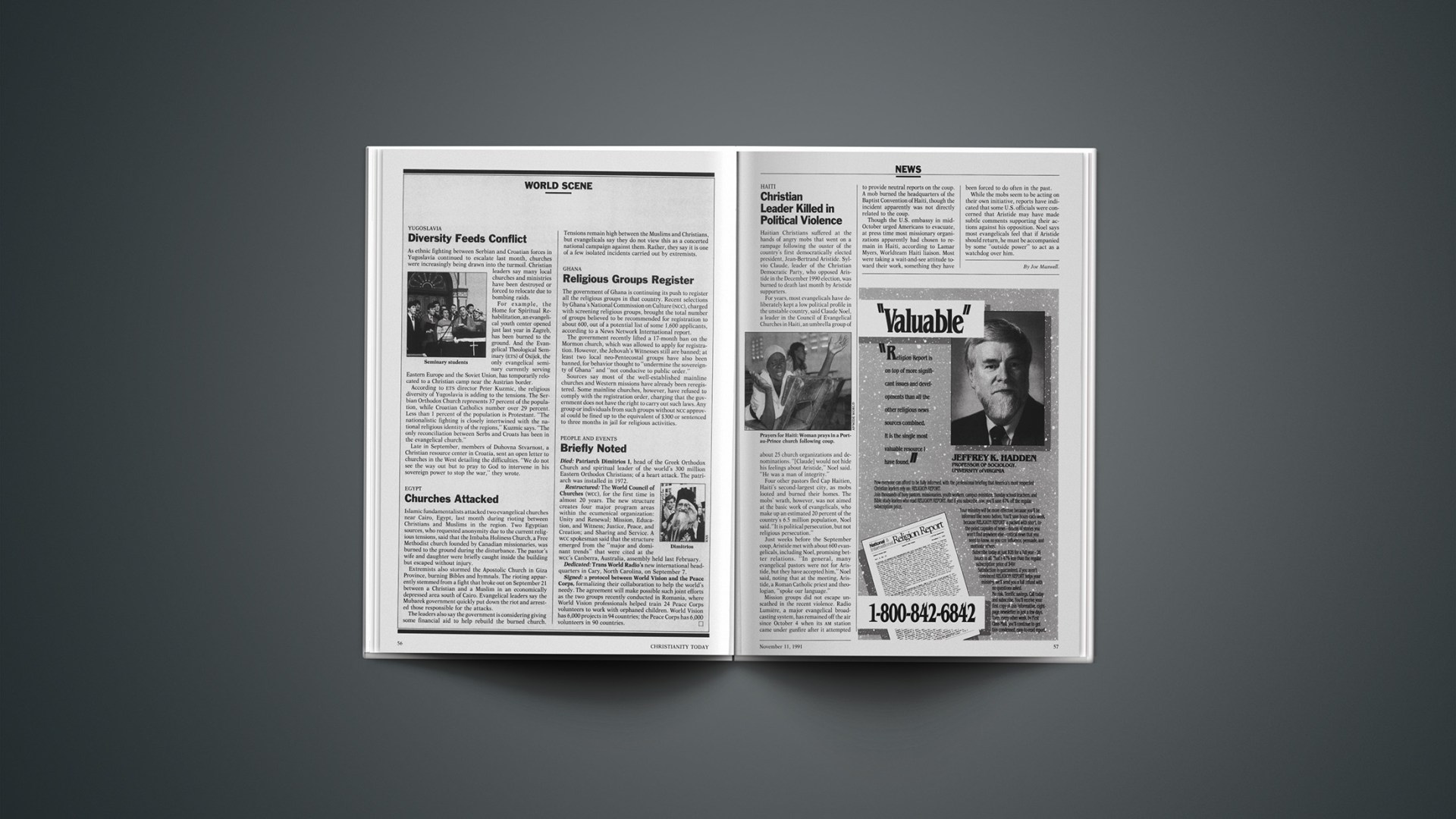Haitian Christians suffered at the hands of angry mobs that went on a rampage following the ouster of the country’s first democratically elected president, Jean-Bertrand Aristide. Sylvio Claude, leader of the Christian Democratic Party, who opposed Aristide in the December 1990 election, was burned to death last month by Aristide supporters.
For years, most evangelicals have deliberately kept a low political profile in the unstable country, said Claude Noel, a leader in the Council of Evangelical Churches in Haiti, an umbrella group of about 25 church organizations and denominations. “[Claude] would not hide his feelings about Aristide,” Noel said. “He was a man of integrity.”
Four other pastors fled Cap Haitien, Haiti’s second-largest city, as mobs looted and burned their homes. The mobs’ wrath, however, was not aimed at the basic work of evangelicals, who make up an estimated 20 percent of the country’s 6.5 million population, Noel said. “It is political persecution, but not religious persecution.”
Just weeks before the September coup, Aristide met with about 600 evangelicals, including Noel, promising better relations. “In general, many evangelical pastors were not for Aristide, but they have accepted him,” Noel said, noting that at the meeting, Aristide, a Roman Catholic priest and theologian, “spoke our language.”
Mission groups did not escape unscathed in the recent violence. Radio Lumière, a major evangelical broadcasting system, has remained off the air since October 4 when its AM station came under gunfire after it attempted to provide neutral reports on the coup. A mob burned the headquarters of the Baptist Convention of Haiti, though the incident apparently was not directly related to the coup.
Though the U.S. embassy in mid-October urged Americans to evacuate, at press time most missionary organizations apparently had chosen to remain in Haiti, according to Lamar Myers, Worldteam Haiti liaison. Most were taking a wait-and-see attitude toward their work, something they have been forced to do often in the past.
While the mobs seem to be acting on their own initiative, reports have indicated that some U.S. officials were concerned that Aristide may have made subtle comments supporting their actions against his opposition. Noel says most evangelicals feel that if Aristide should return, he must be accompanied by some “outside power” to act as a watchdog over him.
By Joe Maxwell.










